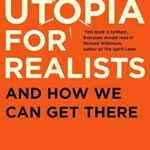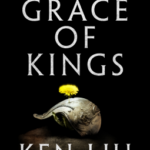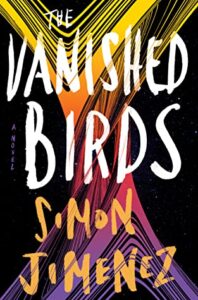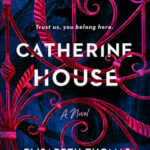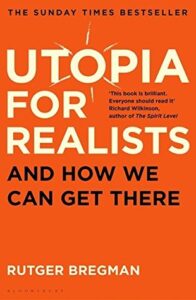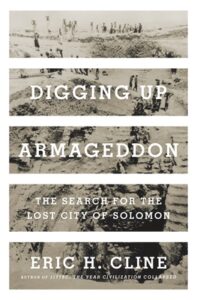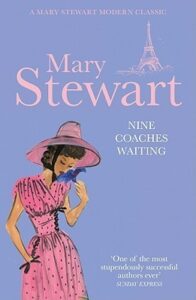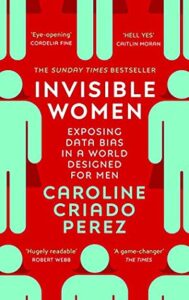 Invisible Women: Data Bias in a World Designed for Men, Caroline Criado-Perez
Invisible Women: Data Bias in a World Designed for Men, Caroline Criado-Perez
I was somewhat hesitant to read this book. Caroline Criado-Perez became somewhat known during her campaign to ensure that Britain’s currency honoured at least one female figure (aside from the Queen), during which she endured a torrent of abuse. However, she’s also been accused of being a TERF (trans-exclusionary radical feminist), owing partly to a really rather bizarre rant complaining that she’s not cisgender. Since being “cis” is simple the counterpart of being trans (think Cisalpine and Transalpine Gaul, or cis and trans fats)… it’s a weird hill to decide to die on, though a certain branch of “feminism” has decided to find “cis” offensive as a term.
Anyway, I decided that it was important I read this anyway, partly to form my own opinion and partly because I think the topic of her book is important, so I got it from the library. And I’ll be clear: she’s not wrong in many of the things she asserts, for example that drugs are tested on men and not on women, and that this results in drug dosages being calibrated to the average man… and thus often failing entirely in women, or conversely proving to be harmful. Criado-Perez has example after example in which there is a clear tendency for people to a) bucket the vast array of human variation into two sexes, and b) ignore one of those two buckets anyway.
Unfortunately, she’s all on board with a). She critiques things as if those buckets are real things, rather than acknowledging that despite those fairly robust-looking buckets, within them there is still a great deal of variation, and between them there is great overlap. I was going to say that it would not shock me at all to learn that the differing causes of intersex development each have different impacts on response to drugs — but it would be more accurate to say that I’d be pretty flabbergasted if it weren’t the case. This makes her examples of the “gender data gap” overly simplistic when she discusses it as it relates to medical interventions, though a layperson might well not notice. To me, that’s a problem in itself. It’s far too easy to come away with the impression that there’s two kinds of people in the world, men (who have XY chromosomes and “male” bodies) and women (who have XX chromosomes and “female” bodies).
For someone who is reading this book without really being interested in trans issues, so much of what she says will just be taken as read. Since she’s critiquing a very binary society, it will fit very well within what people understand. I think she could’ve unpicked this a lot more, and that it’s a particular problem when she embroiders on how women would be much better at handling x or y because they are inherently more caring and drawn to compromise. There’s a lot of critique of that ‘women are from Venus, men are from Mars’ attitude in science as well. Figuring out how best to handle all this is not served by blithely accepting sex differences as being a stark divide between male and female, either.
Part of the gap in all our data is this lack of understanding that “male” and “female” are roles, differing slightly in different societies, and sometimes admitting of other gender identities… none of which really express the sheer variety that those buckets contain. Despite, for instance, her complaints about medical interventions being calibrated for men and not women, we actually need to know not the right drug and dosage to use for a woman, but the right drug and dosage to use for a given individual.
In many places in her book, you can read in “those perceived as female” instead of “women” and “those perceived as male” instead of “men”, and it makes perfect sense. Criado-Perez does state in the preface that she discusses gender rather than sex because the problem does not reside in the female body, but in how “women are treated because they are perceived to be female”. This is a bit more nuanced than I’d expected from her based on the criticism online, but from that point on she refers solely to “women” and “men”. Throughout, Criado-Perez refers to “women” and means a sort of average woman, who she pretty much always imagines with kids (or as someone who will plan to have kids) and a husband who earns more than her.
I think her book is not a bad place to start, if you haven’t thought about the topic, but it’s likely to be disappointing to anyone with a more nuanced view. She has a simplistic view of gender: highly reductive, and prone to leaning on supposed sex differences without ever critiquing whether they’re even real (as others like Cordelia Fine and Gina Rippon have done). She is not wrong that the “typical” male body is treated as the default, and that it has resulted in massive gaps in our data. She’s not wrong about the impacts on people everywhere, either, and when she discusses the social impacts of the gap in data, she makes some good points. She’s more gender essentialist than I would ever care to be, though.
Rating: 2/5







